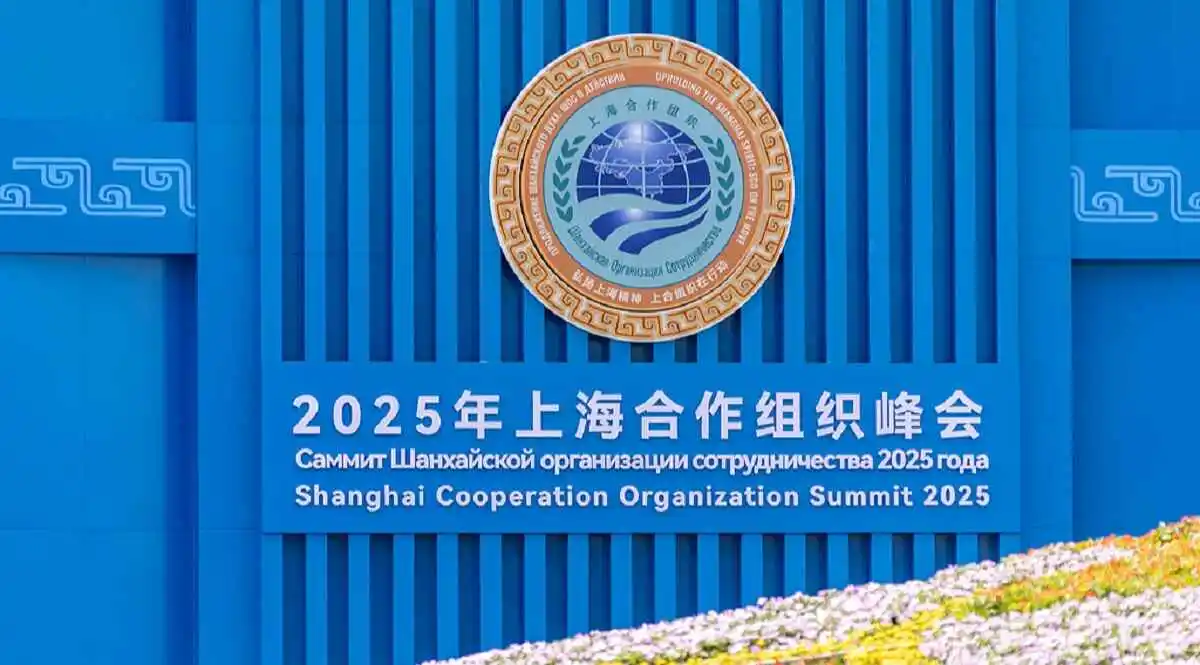
In a move that underscores shifting alliances in an increasingly multipolar world, the United Nations General Assembly (UNGA) adopted Resolution A/RES/79/388 on September 5, 2025, enhancing cooperation between the UN and the Shanghai Cooperation Organization (SCO). This development, coming on the heels of the SCO’s Tianjin Summit, signals a push for alternative global governance structures amid rising tensions with Western-led institutions.
Growing UN-SCO Ties
The UNGA resolution, introduced by China and co-sponsored by nearly 40 countries including all SCO members, passed with overwhelming support—120 votes in favor, highlighting broad international backing. It commends the SCO’s “constructive role” in promoting regional peace, sustainable development, mutual trust, and cooperation across Eurasia. Key provisions include:
- Strengthened Dialogue: Encourages regular consultations between the UN Secretary-General and the SCO Secretary-General via existing mechanisms, such as high-level interactive dialogues.
- Support for SCO Initiatives: Acknowledges the SCO’s efforts in countering terrorism, separatism, and extremism, while aligning with UN goals like the 2030 Agenda for Sustainable Development.
- Tianjin Summit Recognition: Welcomes outcomes from the August 31–September 1, 2025, summit hosted by China, including President Xi Jinping’s Global Governance Initiative, which calls for “true multilateralism” and opposes hegemonism.
The resolution builds on previous UN-SCO collaborations, such as joint efforts in counter-terrorism and economic development, and invites SCO participation in future UN sessions. Representatives from Russia, Kyrgyzstan, Belarus, Pakistan, Iran, Cambodia, Cuba, Venezuela, and Serbia praised the move during the UNGA session, emphasizing its timeliness in addressing global challenges.
The SCO’s Evolution and the Tianjin Summit
Founded in 2001 by China, Russia, and Central Asian states, the SCO has grown into the world’s largest regional organization, covering nearly half the global population with members like India, Iran, and Pakistan. The 2025 Tianjin Summit, dubbed “SCO Plus,” expanded its scope by proposing an SCO Development Bank to rival Western institutions like the World Bank and IMF. Leaders, including Xi Jinping, Vladimir Putin, and Narendra Modi, endorsed a “Tianjin Declaration” that condemns unilateral sanctions, glorification of Nazism, and calls for reforms in global economic governance.
UN Secretary-General António Guterres hailed the SCO’s role in catalyzing sustainable investments and regional stability, aligning with UN priorities. However, critics view this as part of China and Russia’s strategy to erode US influence, promoting a “new global order” free from Western dominance.
Global Power Politics:
This resolution isn’t just diplomatic nicety—it’s a chess move in global power politics. Here’s how it reshapes the landscape:
- Challenge to Western Hegemony: The SCO positions itself as a counterweight to NATO, the G7, and QUAD, advocating for “equal and indivisible security” and opposing “power politics.” Iranian advisor Ali Akbar Velayati dramatically stated that the summit’s outcomes signal the “bones breaking” of a West-obedient UN, heralding a multipolar era. This resonates amid US-China trade tensions and Russia’s isolation over Ukraine.
- Economic and Security Integration: Proposals for local currency trade and a development bank could reduce reliance on the US dollar, weakening sanctions’ bite on members like Iran and Russia. The SCO’s focus on cyber defense, counter-terrorism, and energy security offers practical alternatives to Western frameworks.
- Divisions and Limitations: Not all is unified. India’s participation, despite border disputes with China, is seen as hedging against US tariffs under Trump. Analysts note internal fractures: Russia’s war in Ukraine strains ties with Central Asia, while India’s SCO involvement doesn’t preclude its QUAD commitments. Western media, like AP, describes the SCO as a “symbolic unity” rather than a cohesive bloc.
Overall, the resolution bolsters the Global South’s voice, potentially fragmenting UN unity on issues like human rights and sanctions.
Asian Hegemony:
Asia, home to SCO’s core, stands at the epicenter of this shift. The resolution amplifies China’s bid for regional dominance while complicating dynamics for others:
- China’s Leadership Consolidated: As rotating chair, China used the summit to pitch its Global Governance Initiative, framing the SCO as a vehicle for “democratic international relations.” This enhances Beijing’s influence over Central Asia’s resources and Belt and Road projects, positioning it as Asia’s hegemon. However, it risks alienating neighbors wary of debt traps.
- Russia’s Asian Pivot: Facing Western sanctions, Moscow leverages the SCO for economic lifelines and military ties. The resolution supports Russia’s narrative of a “multipolar” Asia, but its influence wanes as China dominates.
- India’s Strategic Hedging: Modi’s attendance signals warming ties with China amid US trade pressures, but border tensions persist. India benefits from SCO’s counter-terrorism focus but resists full alignment, maintaining Indo-Pacific alliances to counter Chinese hegemony.
- Regional Ramifications: For smaller states like Kazakhstan and Kyrgyzstan, the SCO offers security against extremism but raises concerns over asymmetric power (China’s dominance). In the Middle East, Iran’s membership strengthens anti-US coalitions, potentially escalating tensions with Israel and Gulf states.
Critics argue this could intensify Asian rivalries, with the SCO seen as a tool for Sino-Russian authoritarianism rather than genuine multilateralism.
Global Reactions:
Social media buzzed with reactions. Chinese outlets like CGTN celebrated the resolution as a win for multilateralism. Iranian voices hailed it as the UN’s decline. Indian analyst Yusuf Unjhawala noted risks to India’s US ties. Western think tanks, like MERICS, warn of the SCO pushing an “alternative global order” that divides the world.
A Pivotal Moment in Geopolitics
The UN-SCO resolution marks a milestone in the quest for a multipolar world, empowering non-Western voices while challenging established powers. For global power politics, it accelerates de-dollarization and security diversification; for Asian hegemony, it cements China’s centrality but exposes fault lines. As tensions rise— from US elections to regional conflicts—watch how this evolves. Will it foster cooperation or deepen divides? The answer could redefine the 21st century.